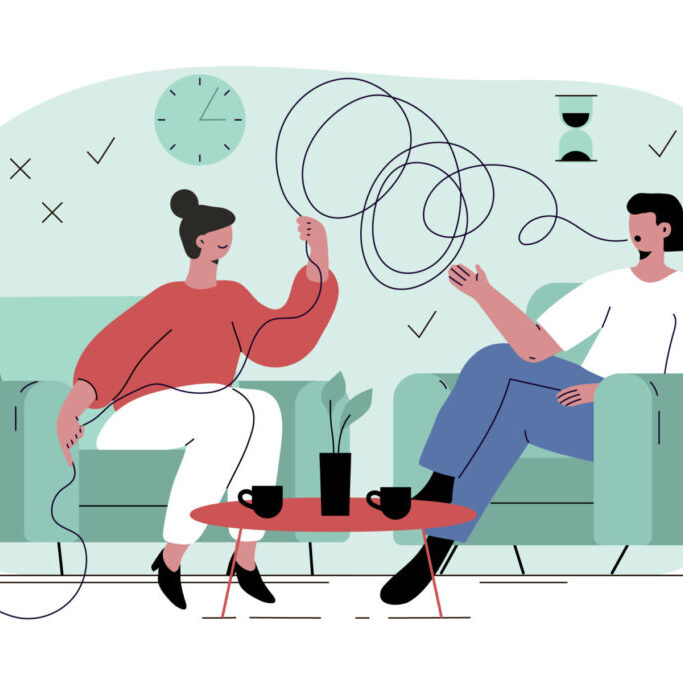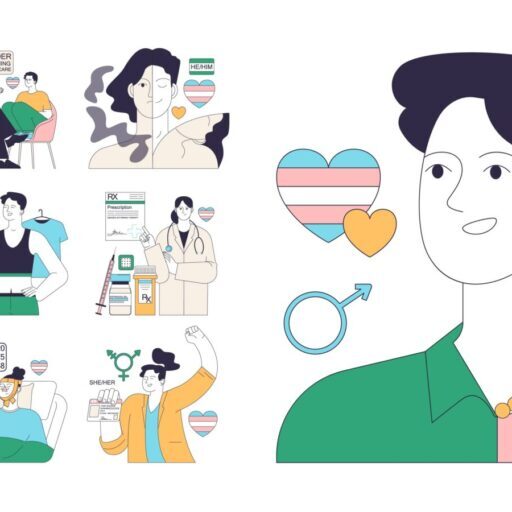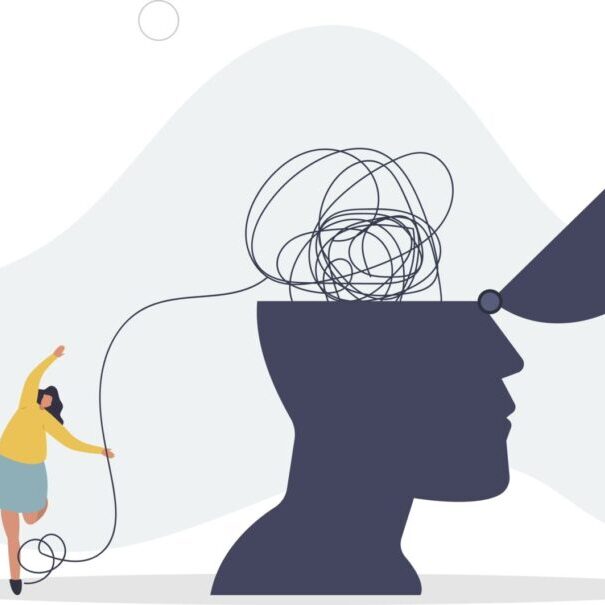Strategies for Enhancing Mental Well-being in the Lesbian Community

Mental health represents a critical component of relationships, life satisfaction, and health, yet it remains a complex challenge for many. In environments characterized by a rapid pace of life, such as Chicago, mental health struggles are exacerbated. Factors like economic disparity, social isolation, and systemic discrimination contribute to heightened levels of stress, anxiety, and depression. This situation is even more pronounced within specific demographics, including lesbian women, who face unique challenges that impact their mental health.
Heightened Vulnerability of Lesbian Women to Mental Health Struggles
Empirical research consistently highlights the disproportionate impact of mental health issues on lesbian women compared to their straight, cisgender counterparts. Studies such as those conducted by Meyer et al. (2021) reveal these disparities. For example, this research concluded that lesbian women exhibit a 30% higher rate of anxiety disorders.
Similarly, Hughes and Matthew (2022) found that depression and suicidal ideation are markedly more prevalent as well, with figures suggesting nearly double the rates found in the heterosexual, female population. Substance abuse is another area where lesbian women face higher risks, with a study by Johnson and Chen (2021) reporting a 25% greater incidence compared to cis, straight women.
What Factors Contribute to the Mental Health Challenges in Lesbian Women?
- Misogyny and Sexism – Misogyny and sexism cast long shadows over the lives of all women, but lesbian women contend with these forces on multiple fronts. This dual burden often manifests in both overt discrimination and subtler, insidious forms of bias that can erode mental well-being. The intersection of sexual orientation and gender can magnify feelings of vulnerability, contributing to a hostile environment that fosters lesbian mental health issues.
- Internalized Homophobia – Internalized homophobia represents a profound internal conflict, where societal prejudices are absorbed and turned inward, leading to self-stigmatization. Described by Robinson and Espelage (2021) as a significant predictor of psychological distress, internalized homophobia can lead to depression, anxiety, and self-harm among lesbian women. This phenomenon is often a hidden battle, with queer women feeling isolated in their struggles.
- Stereotyping and Discrimination – Everyday interactions for lesbian women can be laden with microaggressions—subtle, often unintentional expressions of bias. These interactions, rooted in broader societal stereotypes, can cumulatively lead to significant psychological strain (Patel et al., 2022).
- Minority Stress – Minority stress theory explains how the chronic stress of being a minority can directly affect mental health. For lesbian women, this stress is multifaceted, encompassing social stigma, expectations of rejection, and the internalizing of negative societal attitudes.
- Medical Mistreatment – Discrimination in healthcare settings can also exacerbate lesbian mental health struggles. Lesbian women are sometimes judged for their sexual behavior or wrongly blamed for health issues such as STIs.
- Hate Crimes – Violence against lesbians remains a grave concern, with hate crimes casting long shadows over the community. The fear and trauma associated with such experiences can lead to PTSD, anxiety, and a pervasive sense of insecurity. Studies by the Human Rights Campaign data (2021) suggest that these experiences are alarmingly common.
- Family Rejection – Family rejection is a particularly devastating type of trauma. Researchers Ryan and colleagues (2021) concluded that it can lead to increased depression, suicidality, and a deteriorated self-concept.
- Professional Mistreatment – In the workplace, lesbian women may face unique challenges, including discrimination and a lack of understanding from colleagues and supervisors. This environment can contribute to a workplace atmosphere that is not only unwelcoming but also actively detrimental to their mental health.
- Lack of Representation – The absence of visible, positive representation in media and politics can also lead to a negative self-concept among lesbian women. This lack of representation contributes to feelings of invisibility and marginalization, which can exacerbate depression, substance abuse, and suicidal thoughts.
Strategies to Improve Lesbian Mental Health
To mitigate these risks, several strategies can be implemented:
- Engage with Others! Building a strong, supportive community among lesbians and allies can provide a buffer against mental health challenges. Does your employer offer a lesbian or LGBT employee resource group? If not, would they allow you to start one?
- Shared Advocacy! Collaborating with non-lesbian, queer people and allies can help distribute the burden of advocacy and increase overall community support.
- Build Awareness! Implementing education initiatives on the impact of rejection and isolation can significantly reduce stigma and improve lesbian mental health outcomes. These may come in the form of Tick Tock accounts or governmentally led or sponsored formal education.
- Affirmative Parenting and Mentorship! Parents can play a crucial role by affirming and supporting LGBTQ identities from a young age. As opposed to the data that show the negative impacts of familial rejection, support from family or another adult has a tremendous protective effect on mental health for lesbian young people.
- Support Research and Training! Funding research into LGBTQ mental health solutions and requiring LGBTQ cultural competency training for professionals are critical steps toward improving care.
- Political Representation Matters! Voting for, supporting financially, and promoting campaigns of lesbian political candidates creates both visibility and (usually) advocates for lesbian and LGBT causes in seats of power. To Chicago’s credit, we have numerous lesbian political representatives!
Lesbian Therapy: Tailoring Mental Health Support to Unique Needs
But, what is lesbian therapy? Lesbian therapy is a specialized form of individual therapy designed to meet the unique psychological needs of lesbian women. It goes beyond the conventional scope of individual therapy by integrating an understanding of the specific societal, cultural, and personal challenges faced by lesbian women. In doing so, lesbian therapy aims to provide a safe, affirming space where clients can explore their identities, experiences, and challenges without the fear of judgment or misunderstanding.
One of the foundational elements that differentiate lesbian therapy from traditional therapy is the therapist’s deep understanding of the specific struggles faced by lesbian clients. This includes, among others, experiences of homophobia, sexism, and internalized lesbian stigma.
Lesbian therapy addresses these issues head-on, providing strategies and support that are relevant and sensitive to the unique contexts of these lived experiences. Therapists trained in lesbian therapy are not only aware of these dynamics but are also skilled in navigating and helping to mitigate their impact on mental health.
The therapeutic environment in lesbian therapy is carefully curated to reflect and celebrate lesbian identities. This involves the use of inclusive language, the visibility of lesbian culture and symbols, and the presence of literature and resources that resonate with lesbian experiences.
Such an environment reassures clients that their identity is acknowledged and valued, which is crucial for fostering trust and openness in therapy. It stands in contrast to some traditional therapy settings, which may inadvertently reflect a heteronormative bias, making it difficult for lesbian clients to feel fully seen and understood.
Feminist at its core, Lesbian therapy actively challenges the traditional systems of misogyny that often permeate societal structures and interpersonal interactions. By addressing and unpacking these systems within the therapeutic process, lesbian therapy empowers clients to recognize and confront external and internalized misogyny.
Doing so, not only facilitates personal growth and self-acceptance but also contributes to broader societal change by equipping clients with the tools to challenge oppressive norms in their own lives and communities.
Efforts are made to dismantle power dynamics that traditionally exist in therapeutic relationships. Lesbian therapy strives to create a more egalitarian relationship between the therapist and the client. This is facilitated through practices that emphasize collaboration and mutual respect, rather than a top-down approach where the therapist is seen as the sole expert. Further, lesbian therapy works to reduce barriers to engagement.
Recognizing that lesbian clients may have had negative experiences with other therapists (or medical professionals) in the past, lesbian therapy works to reduce barriers to engagement. This includes offering flexible therapeutic approaches, considering economic factors, and providing various communication channels that accommodate the client’s comfort and needs.
Finally, lesbian therapy fundamentally believes that lesbian women are the experts of their own experiences and stories. Therapists encourage clients to lead discussions about their lives and identities, which validates their experiences and fosters a sense of agency. This empowerment is crucial to model agency and supports healing from the effects of living in a society where agency is often undermined and lesbian identities are often marginalized.
Lesbian therapy is not just a niche form of therapy; it is a necessary and profoundly transformative practice that acknowledges and addresses the specific mental health needs of lesbian women. By tailoring the therapeutic experience to encompass the realities of lesbian life, lesbian therapy offers a powerful avenue for healing, growth, and empowerment.
Enhancing the mental well-being of lesbian women requires a comprehensive understanding of the unique challenges faced by women who are lesbian. By addressing these issues through specialized therapy and community-focused strategies, significant improvements in lesbian mental health outcomes can be achieved. Lesbian therapy plays a pivotal role in this process, providing crucial support tailored to the needs of the lesbian community, and ensuring that mental health care is affirming, accessible, and effective.
This blog is made for informational and educational purposes only. It is not medical advice. The information in this blog is not intended to (1) replace a one-on-one relationship with a qualified licensed health care provider, (2) create or establish a provider-patient relationship, or (3) create a duty for us to follow up with you.



